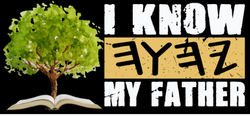Lessons from a Divided Kingdom: The Perils of Pride and Foolish Advice
Watch the Full Video Lesson Here:
Introduction:
Have you ever stopped to think about how pride and bad advice can destroy relationships, divide communities, and even topple entire kingdoms? The story of Israel’s division offers a profound lesson in humility, the value of wise counsel, and the need for self-reflection. Join us as we uncover these timeless truths and learn how to apply them in our lives today.
Here are our favorite bible study tools. Click the link here.
The Call for Reflection: Weather as a Spiritual Symbol
Have you noticed how extreme weather—whether it’s a sudden storm or an unusually warm winter—can prompt moments of deep reflection? Just as nature’s chaos can disrupt our plans, our lives can feel out of balance when we drift from divine guidance. These natural events often act as wake-up calls, urging us to pause and assess our spiritual health.
For example, a community recovering from a disaster may come together, setting aside differences to seek strength in faith. These moments remind us of the importance of repentance and maintaining a right heart. Just like preparing for a storm, spiritual preparedness helps us weather life’s challenges. By reflecting on these signs, we can reconnect with Yahuwah and align our hearts with His purpose.
Pride and Poor Choices: The Sudden Split of Israel
The story of Israel’s division begins with a sobering truth: even the wisest among us can fall when pride takes root. King Solomon, known for his unparalleled wisdom, made grave mistakes by turning away from Yahuwah’s commandments. His relationships with foreign wives introduced idolatry into Israel, leading to the kingdom’s eventual fracture.
This story teaches us that pride doesn’t just affect the individual—it impacts generations. Solomon’s actions paved the way for division, showing that even small compromises can have lasting consequences. It’s a powerful reminder for us to remain vigilant, guarding our hearts against pride and staying anchored in divine wisdom.
Ignoring Wise Counsel: A Recipe for Disaster
When King Rehoboam inherited the throne, he faced a critical decision: how to respond to his people’s request for relief from heavy burdens. Instead of listening to the experienced elders, he turned to his young, inexperienced friends, who advised him to assert his authority harshly. This decision, driven by pride and poor judgment, led to rebellion and the kingdom’s split.
Rehoboam’s story is a cautionary tale for anyone in a position of influence. Ignoring wise advice can lead to unnecessary conflict and long-term damage. Imagine a manager who only listens to “yes men” and ignores seasoned professionals—such leadership rarely ends well. By respecting and valuing wise counsel, we open the door to growth, harmony, and better outcomes.
Idolatry and Misguided Choices: A Dangerous Path
After the kingdom was divided, Jeroboam, the new king of Israel, made a critical mistake: he introduced idol worship to prevent his people from returning to Jerusalem. His fear of losing control led him to compromise Yahuwah’s commandments, creating a spiritual crisis for the nation.
Idolatry today might not look like golden calves, but it shows up in the form of misplaced priorities—whether it’s money, status, or convenience. When we prioritize these things over our faith, we risk spiritual compromise. Jeroboam’s story warns us against taking shortcuts that might seem easier but lead us further from Yahuwah’s truth. Real faith grows through challenges, not by avoiding them.
The Critical Role of Humility in Leadership
Humility is the cornerstone of effective leadership. The Bible offers countless examples of leaders who thrived because they served others rather than seeking power. Yahushua, the ultimate example, taught that greatness comes from humility and service.
Consider Jeho, who worked behind the scenes yet played a vital role in Israel’s history. His quiet influence reminds us that leadership isn’t about titles or recognition—it’s about serving with integrity. Whether in a family, workplace, or community, humility allows leaders to build trust, foster collaboration, and create lasting change.
The Importance of Accountability: Staying True to Purpose
Accountability is essential for personal growth and spiritual alignment. Solomon’s downfall began when he stopped seeking Yahuwah’s guidance and let pride cloud his judgment. Similarly, we must remain open to correction and seek advice from those who can help us stay on track.
Think of accountability as a safety net that keeps us grounded. It’s not always easy to admit we’re wrong, but doing so fosters growth and strengthens our relationships. By embracing accountability, we ensure that our actions align with our values, helping us stay true to our purpose.
Conclusion:
The story of Israel’s divided kingdom offers a powerful lesson for all of us. Pride and foolish advice can lead to division, but humility, wise counsel, and spiritual reflection can guide us toward unity and growth. As we navigate our challenges, let’s commit to seeking Yahuwah’s wisdom, valuing accountability, and fostering humility in all we do.
The choices we make today shape the legacies we leave behind. By learning from the past, we can build stronger communities, deeper relationships, and a closer connection to Yahuwah.

